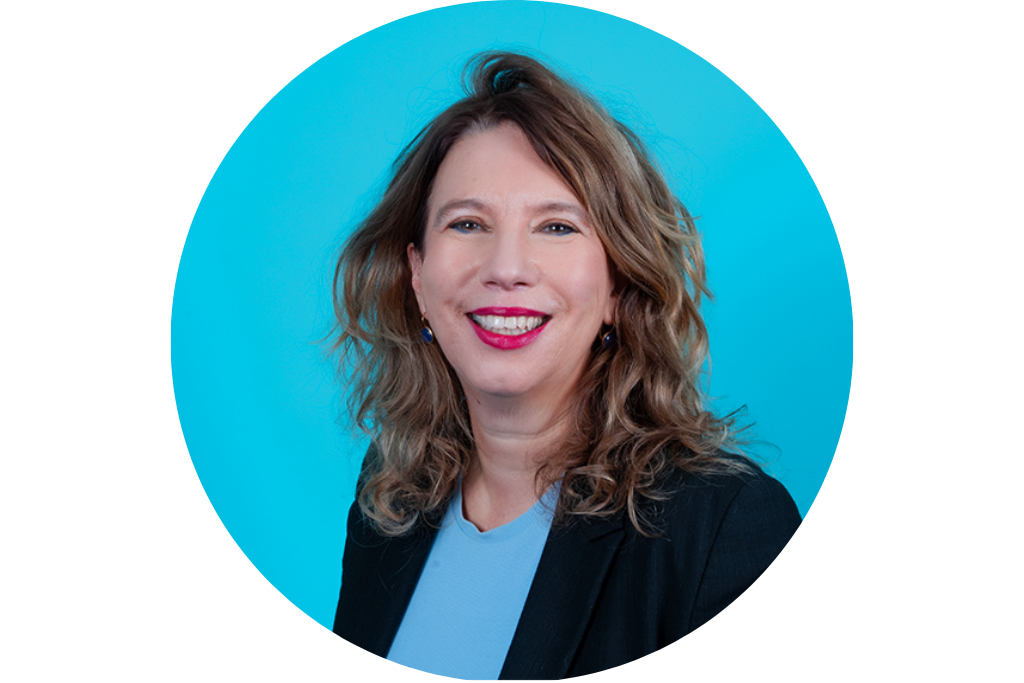‘New connections must be given time to grow’
Nienke Fabries, director of the Centre of Expertise for a Safe & Resilient Society
Throughout her career, Nienke Fabries has made a deliberate effort to gain a wide range of experience. After cutting her teeth in the commercial sector, she worked for several large municipalities before going into business for herself. Eventually, she made the switch to education. The fact that she has seen the world from so many different perspectives has served her well as director of the Centre of Expertise: “This is where all the perspectives come together. New connections must be given time to grow, and I see it as my job to create space for that.”
After studying history at Utrecht University, Fabries worked as an intermediary and sales manager for several years before swapping the business world for local government. The years she spent at the City of Rotterdam were a fascinating time for her: “As department head for the Charlois district, I was introduced to the harsh reality of daily life for many residents – poverty, inequality of opportunity and crime. Pim Fortuyn had just been assassinated and trust in government was at a low, so maintaining a minimal quality of life in the area was a huge challenge. The biggest lesson I learned there is that an effective professional must be open to reality and always ask themselves which efforts will yield the biggest return. You achieve the most when you’re constantly reflecting, adapting and trying new things. You can never give up.”
Connecting and enriching
Another thing Fabries learned in Rotterdam was how to help people in disadvantaged situations tap into their own strengths. “I couldn’t accept that there was a so-called ‘granite file’ of people who’d been written off. A society shouldn’t neglect its citizens, and everyone is entitled to a future – whatever that may look like. My mission wasn’t ‘work first’, but ‘anything first’. That’s how we managed to activate more residents.” She’s especially proud of what’s been achieved through Mentors in South, for which she served as the first programme manager at Rotterdam University of Applied Sciences. “Our students became mentors to vocational secondary school pupils, helping them with whatever life threw at them. The programme has had a real impact and is still running. The interaction between young people with such different perspectives has proved incredibly valuable for both groups. It connects, enriches and inspires.”
Building on what’s already there
After a few years, Fabries decided it was time for a change again and joined Fontys University of Applied Sciences as a regional cooperation adviser. On 1 September 2022, she became quartermaster for the Centre of Expertise for a Safe & Resilient Society at Avans. But while she’s had many different roles, her personal mission has remained the same: to help build a stronger society. “Here at the Centre, I bring together all the social issues I find important and have experience with. And the challenges we’re taking on are incredibly topical. I’m convinced that the best solutions are found at the intersection of education, research and real life, and we need to take the time to explore what cooperation between these worlds can bring us. The better you know each other’s worlds, the more you can learn from each other. That means investing in each other, meeting for coffee, going to each other’s meetings. We don’t all need to invent the wheel – let’s build on the knowledge that’s already there.”
Resilient world
Science’s strength is its objectivity in the face of tension and polarisation, Fabries argues. But we do need to put scientific knowledge to good use: “With all these amazing researchers and professors, we have an incredible amount of expertise here. But in the end, what matters is that professionals benefit from our knowledge in practice. Because they’re the ones who help people move forward and make the world a safer and more resilient place. I feel honoured to have been given the opportunity to contribute to that.”


